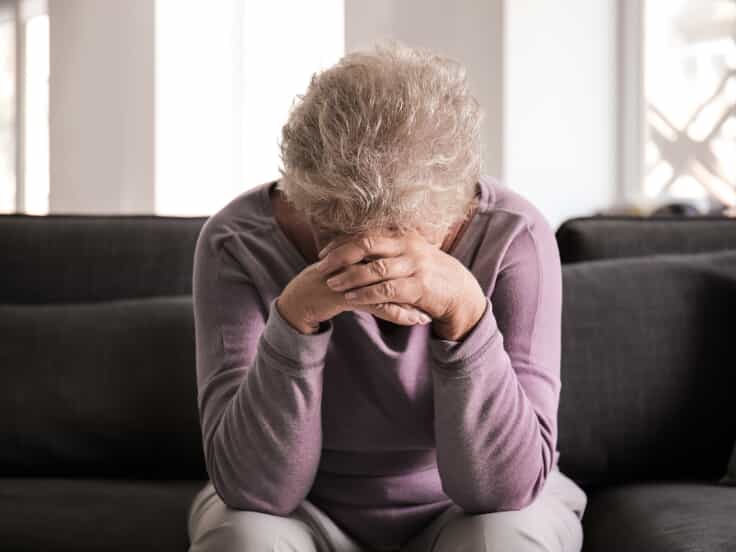Post-traumatic stress disorder (PTSD) is a mental health condition that's triggered by a terrifying event — either experiencing it or witnessing it. Symptoms may include flashbacks, nightmares, and severe anxiety, as well as uncontrollable thoughts about the event.
That’s the definition provided by the Mayo Clinic. Having served in the United States military, I hold a special place in my heart for all my brothers and sisters in uniform, no matter their branch of service, because many of them suffer from PTSD.
However, even though our thoughts may immediately conjure an image of someone who served our country, the definition does not preclude everyday individuals who also contend with PTSD due to troubling events in their own lives.
For example, just think about all of the people who have survived mass shootings across our nation over the last 15 years, as well as the families and friends of the innocent victims who succumbed to their injuries. PTSD may not plague all of them, but you can certainly understand the trauma they’ve endured and the pain they feel.
So many terrible events have impacted people of all ages, but the levels at which they cope vary widely from individual to individual.
Symptoms of PTSD may not occur right away. In some cases, symptoms develop within a month or so following a traumatic event. In other cases, it may be years before symptoms arise. Professionals have grouped these symptoms into four types:
Intrusive Memories – Symptomsinclude:
- Recurrent, unwanted distressing memories of the traumatic event
- Reliving the traumatic event as if it were happening again, commonly known as flashbacks
- Disturbing dreams or nightmares about the traumatic event
- Severe emotional distress or physical reactions to something reminiscent of the event
Avoidance – Symptomsinclude:
- Trying to avoid thinking or talking about the traumatic event
- Avoiding places, activities or people that remind you of the traumatic event
Negative Changes in Thinking and Mood – Symptomsinclude:
- Negative thoughts about yourself, other people, or the world
- Hopelessness about the future
- Memory problems including not remembering important aspects of the trauma
- Difficulty maintaining relationships
- Feeling detached from family and friends
- Lack of interest in activities once enjoyed
- Difficulty experiencing positive emotions
- Feeling emotionally numb
Changes in Physical and Emotional Reactions – Symptomsinclude:
- Being easily startled or frightened
- Always being on guard for danger
- Self-destructive behavior, such as drinking too much or driving too fast
- Difficulty sleeping
- Trouble concentrating
- Irritability, angry outbursts, or aggressive behavior
- Overwhelming guilt or shame
If you or someone you love is experiencing any of these types of PTSD symptoms, Mayo Clinic recommends getting help as soon as possible to prevent the symptoms from getting worse over time. If symptoms persist for more than a month, please consult with a medical or mental health professional as soon as possible.
If you or a loved one with PTSD is having suicidal thoughts, seek help immediately through one or more of the following resources:
- Reach out to a close friend or loved one
- Contact a minister, spiritual leader, or someone in your community of faith
- Contact a suicide hotline 24/7/365. Call or text 988 to reach the Suicide & Crisis Lifeline (free and confidential)
- Use Lifeline Chat (free and confidential)
- Make an appointment with your doctor or a mental health professional
Call 911 if you think you might hurt yourself or attempt suicide! If you know someone is feeling suicidal or has attempted suicide, it is best to have someone stay with them to ensure they stay safe.
“Most people who go through traumatic events may have temporary difficulty adjusting and coping, but with time and good self-care, they usually get better. If the symptoms get worse, last for months or even years, and interfere with your day-to-day functioning, you may have PTSD,” according to Mayo Clinic.
June is National PTSD Awareness Month, and we want you to be aware that Home Helpers® employs exceptional caregivers who are available 24/7/365 to assist you or a loved one who has been impacted by a traumatic event and suffers from PTSD.
Our compassionate caregivers are highly trained to provide a variety of in-home care services and support. I am happy to schedule a FREE consultation at your convenience to assess specific needs and determine ways we can help in Making Life Easier™ for you or a special loved one suffering from PTSD. 330.892.9329
Home Helpers® Canton, OH, is Veteran-owned and operated. We are honored to have received the Home Care Pulse – Best of Home Care® Provider of Choice Award, the Shooting Star Award (2011), and multiple Platinum awards for the superior level of care we provide. We are Certified Senior Advisors and members of the Home Care Association of America, Alzheimer’s Association, and International Franchise Association. Additionally, we were ranked in the Top 500 Franchises by Entrepreneur Magazine in 2019.
Home Helpers® Canton is Making Life Easier™ every day for male and female seniors in Stark County, Portage County, and portions of Summit County including the communities of Akron, Alliance, Canton, East Sparta, Hartville, Jackson, Massillon, Navarre, North Canton, Randolph, and surrounding areas.
Source:

